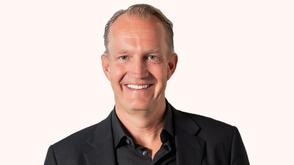Sandra Malmberg: Born in Europe, Built for the World


Sandra Malmberg, a partner at EQT’s venture capital arm, explains the technological potential at the heart of Europe.
I am European.
Here are a few other things that are too:
- 🇩🇪 The programmable computer (1941, Konrad Zuse, Germany)
- 🇬🇧/🇩🇪 The jet engine (1940s, Frank Whittle & Hans von Ohain, UK & Germany)
- 🇬🇧 Public-key cryptography (1970s, Clifford Cocks, GCHQ, UK)
- 🇬🇧 The lithium-ion battery (1970s–80s, John B. Goodenough, University of Oxford)
- 🇪🇺 The GSM mobile network (1980s, ETSI, Europe)
- 🇫🇷/🇬🇧/🇩🇪 Deep-learning algorithms (1980s–90s, Yann LeCun – France, Geoff Hinton – UK, Jürgen Schmidhuber – Germany)
- 🇩🇪 The MP3 format (1987, Fraunhofer Institute, Germany)
- 🇨🇭 The World Wide Web (1990, Tim Berners-Lee, CERN – Switzerland)
- 🇬🇧 Modern AI foundations (2010s, Demis Hassabis, DeepMind – UK)
European innovators have shaped many of the technologies that define modern life. Europe has always been an inventor’s continent, a place where deep science meets practical engineering, and where ideas are built to last. From the precision of German engineering to the creativity of Nordic design and the academic excellence of the UK and France.
And yet, Europe largely missed the train on the digital revolution.
As former European Central Bank president Mario Draghi pointed out in his report on EU competitiveness last year, only four of the world’s 50 largest technology companies are European. The web may have been born here, but many of its platforms, business models, and distribution power migrated elsewhere.
Why? Many reasons are structural:
- Fragmented markets. Twenty-seven sets of regulations, taxes and labor laws make scaling across Europe a legal labyrinth.
- Talent friction. Europe produces world-class engineers and founders, but loses many of them to ecosystems that reward risk-taking and offer better business opportunities.
- Capital constraints. Late-stage growth capital and liquidity remain scarce.
To lead again, Europe must aim to become the best place in the world to build and scale a company. To unlock Europe’s next wave of global champions, we need to act on three fronts:
1. Build a unified distribution. The European Union is bigger than the U.S. in population, with an economy about two-thirds of the size. Imagine its power if it could operate as a single digital market. A founder should be able to launch and scale across borders as easily as in the U.S.
2. Become the home for the best talent. Sixty-five percent of the top U.S. AI companies were founded by immigrants, many originally from Europe, according to the think tank National Foundation for American Policy. We need to make Europe a magnet again: fix stock-option taxation, simplify hiring, and make it easier for the best talent to stay and build here.
3. Put capital to work. Money talks. We need to unlock institutional and private capital for growth-stage tech and make it easier for employees to share in the upside.
The good news is that a new generation of founders and initiatives is already rewriting the narrative:
- EU Inc. – pushing for the creation of a new legal entity so companies can more easily work across the EU.
- Lovable (Sweden) – showing that a global AI company can thrive in Stockholm.
- ElevenLabs (Poland/UK) – pioneering employee tenders to let teams share in the value they’ve built.
- Station F (France) – creating one of the world’s most vibrant startup ecosystems.
- Spotify founder Daniel Ek (Sweden) – turning constraints into advantages: “Sweden was too small, so we had to think global from day one.”
- Sana (Sweden) – an EQT Ventures portfolio company marking one of Europe’s largest AI exits.
- Paid (UK) – a U.S. unicorn founder choosing London for his next venture.
- Celonis (Germany) – proof that enterprise software built in Munich can conquer the world.
This isn’t about catching up, it’s about breaking out – in our way.
Europe invented the web. Now, it’s time to reinvent what comes next – from AI to robotics, from biotech to quantum.
The next generation of category-defining companies won’t just be born in Europe. They’ll be built for the world.
Sandra Malmberg is a Partner at EQT Ventures, where she focuses on backing visionary and technologically ambitious founders who are reimagining the future. With a keen eye for breakthrough innovation and a deep commitment to founder support, Sandra has been instrumental in several of EQT Ventures’ most forward-thinking investments. Her portfolio includes pioneering companies like Sana, which is harnessing the power of AI to transform learning and upskilling at scale; 1x, which is building safe humanoid robots designed for use in the home; and Vsim, a next-generation platform redefining physics simulations for research and development.
ThinQ by EQT: A publication where private markets meet open minds. Join the conversation – [email protected]




